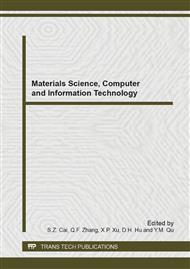p.2047
p.2051
p.2057
p.2062
p.2065
p.2070
p.2075
p.2080
p.2084
Simulation Analysis of Mind Sports Games Based on Artificial Intelligence
Abstract:
Mind sports games is rose in recent years, which is the comprehensive sports event taking the chess sports as the main part, and it is a perfect combination of human intelligence and sports art. Due to a simple history of mind sports games, there exists some problems that are the imbalance of development, lack of funds, and event organization difficulty, which has restricted the rapid development of mind sports games. Aiming at the problems of mind sports games encountering in the development, the paper first proposes the coupling development mechanism for the organization of mind sports games and its development mechanism, and then establishes the model of development mechanism based on the coupling reduction mechanism, and the model has been made simulation analysis. At last, the results show that the application of this coupling model can find the bottleneck of the development of mind sports games, so as to open the breakthrough point for its development, and to improve its development level.
Info:
Periodical:
Pages:
2065-2069
Citation:
Online since:
July 2014
Authors:
Price:
Сopyright:
© 2014 Trans Tech Publications Ltd. All Rights Reserved
Share:
Citation:


